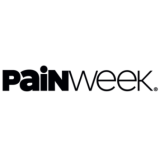Best Practices for Treating Pain with Opioid Analgesics

To provide the fundamentals of acute and chronic pain management and a contextual framework for the safer prescribing of opioid analgesics that includes consideration of a full complement of non-opioid treatment options.
Category
Format
- Self-study / Enduring
Credits
- 2.00 AMA PRA Category 1 Credit™
Applying Best Practices to Prevent, Identify and Manage Prescription Misuse

According to the United States Drug Enforcement Administration, more than 6 million Americans are misusing prescription drugs. In 2015, Governor Baker announced that Massachusetts was in the midst of an opioid epidemic. In 2019, there were 1,952 confirmed opioid-related overdose deaths. The nu
Category
Format
- Self-study / Enduring
Credits
- 1.00 AMA PRA Category 1 Credit™
2022 CDC Clinical Practice Guidelines: What’s the Update on Prescribing Opioids for Pain? - Frankly Speaking Ep 322

Patients deserve compassionate, safe, and effective pain management. But it’s important to remember that safe prescribing does not mean no prescribing. Join us as we discuss the 2022 CDC Clinical Practice Guidelines for prescribing opioids in the adult population.
Category
Format
- Self-study / Enduring
Credits
- 0.25 AMA PRA Category 1 Credit™
NEW 2021-2022: Appropriate Prescribing in Tennessee

This
Category
Format
- Self-study / Enduring
Credits
- 2.00 AMA PRA Category 1 Credit™
Opioid Prescriber Training Program
The purpose of the New York State (NYS) Prescription Drug Overdose (PDO) Prevention Program is to advance and evaluate comprehensive state-level interventions for preventing prescription drug overuse, misuse, abuse, and overdose.
Category
Format
- Self-study / Enduring
Credits
- 2.00 AMA PRA Category 1 Credit™
MATE ACT MODULE

This activity will provide comprehensive and up-to-date information regarding the most recent and relevant laws and clinical practice guidelines regarding the safe and effective management and treatment of pain, including opioid and other substance use disorders.
Category
Format
- Self-study / Enduring
Credits
- 8.25 AANP Contact Hours
- 8.25 AAPA Category I CME
- 8.25 AMA PRA Category 1 Credit™
DEA MATE Opioid and Substance Use for Practitioners

This course meets the 8-hour training requirement for Drug Enforcement Administration (DEA) registered practitioners such as physicians, physician assistants, nurse practitioners, dentists, and others relevant to the Medication Access and Training Expansion (MATE) Act (Section 1263 of the Consoli
Category
Format
Credits
- 8.00 AMA PRA Category 1 Credit™
- 8.00 ANCC
Opioid Safety: Balancing Benefits and Risks

Opioid analgesics are approved by the FDA for the treatment of moderate or severe pain. However, individual patients differ greatly in clinical response to different opioid analgesics, and patient populations show widely variable response to the same opioid and dose.
Category
Format
- Self-study / Enduring
Credits
- 5.00 ACPE Pharmacy
- 5.00 AMA PRA Category 1 Credit™
- 5.00 ANCC
- 5.00 Contact hours
Strategies for Appropriate Opioid Prescribing: The Florida APRN/PA Requirement

Opioid analgesic medications can bring substantial relief to patients suffering from pain.
Category
Format
- Self-study / Enduring
Credits
- 3.00 AMA PRA Category 1 Credit™
Opioid Best Practices - Online CME Course
This online CME course aims to highlight the shift in guidelines and public concern regarding the use of opioids in medical practice. This course provides the most up-to-date information regarding the appropriate indication for opioids in clinical practice.
Category
Format
- Self-study / Enduring
Credits
- 5.25 AMA PRA Category 1 Credit™

 Facebook
Facebook Twitter
Twitter LinkedIn
LinkedIn Forward
Forward